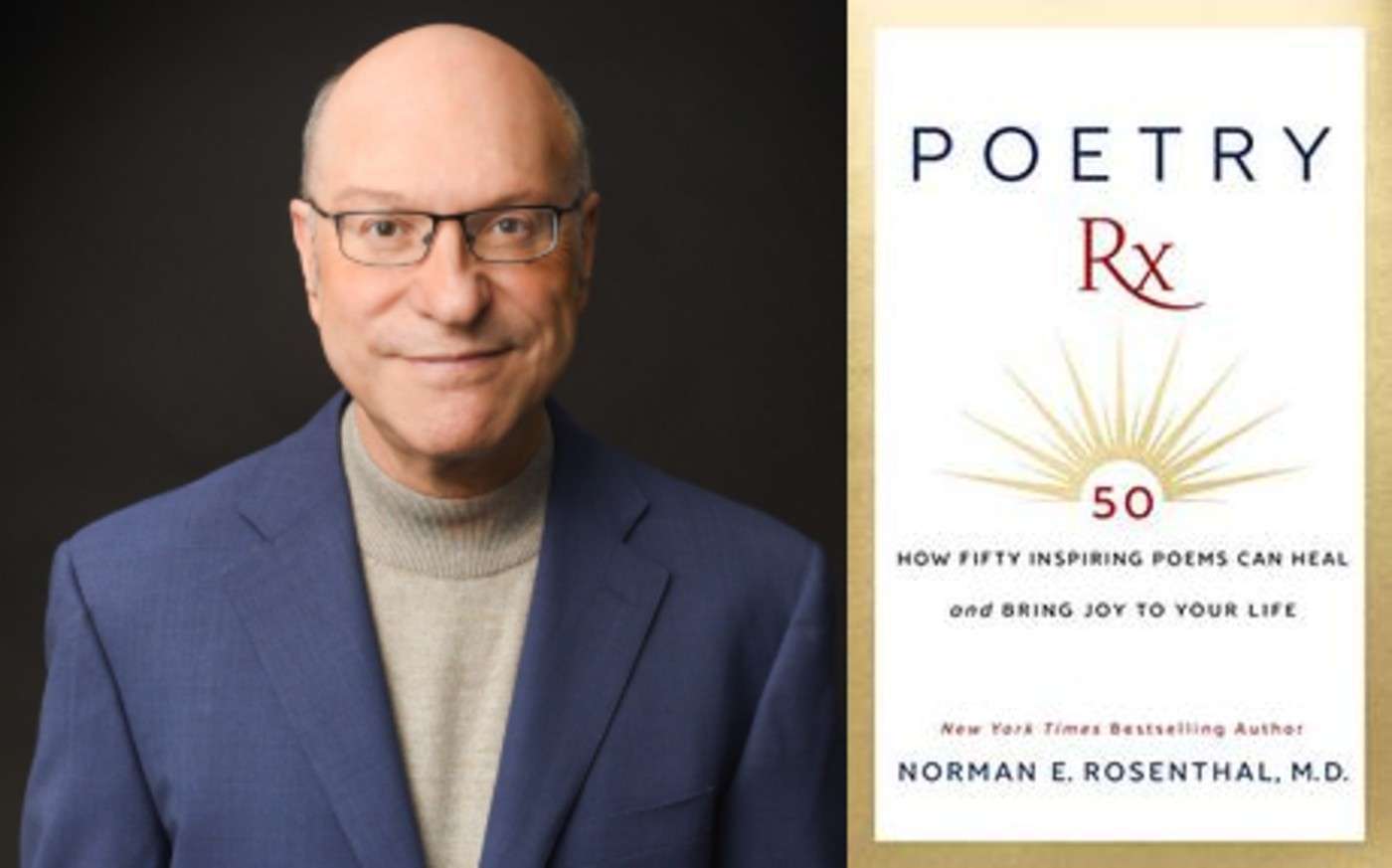Gardening Just Twice a Week Improves Wellbeing and Prunes Your Stress, Says New Study
An RHS study has found that gardening twice a week is as good for wellbeing as rigorous exercise is.

One doesn't need Good News Network to tell them there are a lot of people whose minds and moods have been darkened by the last 14 months.
The mental health crisis that many immediately saw as a great threat from government-enforced business closures, quarantines, and travel restrictions was a very real thing before COVID-19, and as a report from global medical care knowledge provider BMJ states, 2018 saw over 70 million prescriptions for antidepressants written in the U.S., compared to just 36 million ten years before.
Yet Norman Rosenthal M.D., a renowned figure in the psychiatry field, is tackling both crises with a different kind of prescription: a little bit of "Do not go gentle into that good night," or a 30-day course of "How do I love thee? Let me count the ways."
Having just released Poetry Rx: How 50 Inspiring Poems Can Heal and Bring Joy To Your Life, Dr. Rosenthal is trying to show insights into love, sorrow, ecstasy, and everything in between using poems and the stories of their famous writers.
"You know, as an adolescent, as a teenager, I wrote poetry and I loved it, but truly I was not destined to become a poet," Dr. Rosenthal told WS. "But luckily, even though I could not produce wonderful poetry, I could always appreciate it, not just intellectually, but for the emotional gifts it presents."
Separated into five parts, titled: Loving and Losing, That Inward Eye, The Human Experience, A Design for Living and the Search for Meaning, and Into the Night, Rosenthal offers a variety of literary keys to unlock the words needed for one's inner dialogue to start, fortify, or complete the healing process of trauma, grief, or perhaps the general COVID-19 malaise.
"Over the years I collected poems I found either were wonderfully helpful to me, or to my patients or clients, and the effect of that is that I had this collection and I thought, ‘you know that would make a wonderful book'."
The pandemic, as for so many of us, offered the time and the seclusion required for Rosenthal to organize these poems into the different parts and write all the accompanying stories, including brief bios on the poets, and excerpts from friends' and clients' experiences with the poems.
"I might prescribe exercise, I might prescribe meditation, I might prescribe rest… and in that sense I could also prescribe a poem, they're [clients] not going to go to a pharmacy but they could take it as a serious suggestion," says Rosenthal.
As the book has made its rounds along the PR circuit, it's won the praise of The New York Times' "High Priestess of Health" Jane Brody, who for over 40 years has been their personal health columnist.
"The special beauty of Dr. Rosenthal's book for me is his discussion of what each poem is saying, what the poet was likely feeling, and often how the poems helped him personally, as when he left his birth family in South Africa for a rewarding career in the United States," she wrote in her column.
"The wonderful thing about poems are they're relatively short, so in just a few minutes, you can read, enjoy, appreciate, and benefit from a poem; as such they can often be squeezed in between all the things of a busy life," says Rosenthal, whose extensive body of work also includes a publication on the practice of transcendental meditation, and the pioneering of the understanding and treatment of seasonal affective disorder.
The collected poems, largely originating from the English poets, include not only ones which he or his friends and family have enjoyed, but ones that he uses in his psychiatric practice. In particular he told WS of a Rumi passage, pulled from memory, which he often reads with clients having marriage difficulties.
Out beyond ideas of wrongdoing and rightdoing There is a field I'll meet you there
"When the poet says, ‘I'll meet you there,' he's making the first move, he wants to make things better, he wants to suggest taking the squabble to a different plain, to a plain of sharing," explains Rosenthal.
"I personally take information in in chunks, and I think a lot of people do especially these days, very few people have time to read War and Peace or Paradise Lost," says Rosenthal "We like to get information in satisfying chunks, so I thought it would be more digestible if I broke it down into logical groupings."
Poetry Rx really does work like a 30-day prescription, with poems and the related commentary satisfying a day's worth of ponderances, while being grouped together in various stages of the emotional journey of life, one can jump around to whichever words are needed at a particular time.
Another way to look at it might be as a poetry Almanac, giving the book tremendous re-reading potential, as there's no guarantee a reader would relate to all of the content in a single period of their lives.
"Loving and Losing was an obvious first [section], poems are things to which we turn when we're in or out of love. They console us when we're our of love and they enliven us when we're in love," he says. "The second one is responsiveness to nature, because poets tend to be extremely sensitive to their surroundings."
"Above all, it's [a book] about human beings and how to experience your life in a way that enhances it, and if you're suffering in some way, alleviates that pain.
PASS On the Poetry—Share This Story With Friends…
Be the first to comment